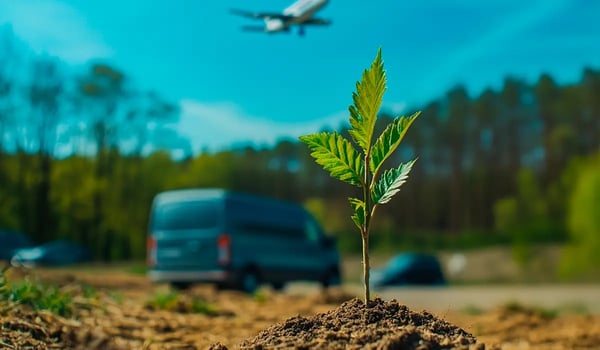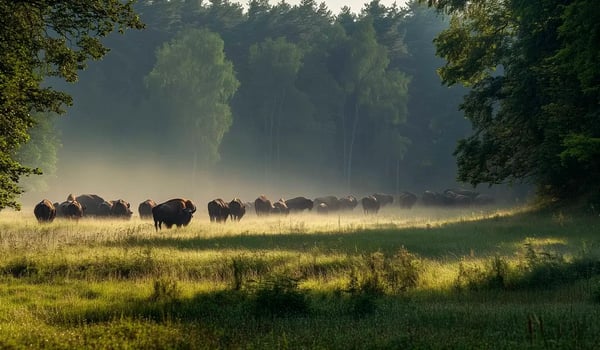Amazon is widening the path to carbon credit access with the rollout of a new service for companies...
Nestlé Doubles Down on Nature-Based Carbon Projects in Brazil
In a bold move to strengthen its climate commitments, Nestlé has announced two major carbon credit agreements in Brazil, advancing reforestation and regenerative agriculture efforts in key cocoa-producing regions.
 A man's hand reaches for a ripe cocoa fruit on a tree, with a sustainable cocoa farm set in Bahia’s Atlantic Forest and surrounded by lush, biodiverse hills. AI generated picture.
A man's hand reaches for a ripe cocoa fruit on a tree, with a sustainable cocoa farm set in Bahia’s Atlantic Forest and surrounded by lush, biodiverse hills. AI generated picture.
The Swiss food giant has signed a 30-year deal with Re.green, a leading Brazilian developer, to purchase 880,000 tonnes of CO₂ equivalent (tCO₂e) credits. The credits will come from an afforestation, reforestation, and revegetation (ARR) project located in the Atlantic Forest of Bahia—a region known for both its biodiversity and ecological vulnerability. The project spans 2,000 hectares and will involve planting 3.3 million native trees under Verra’s VM0047 standard.
‘We will operate in one of the most biodiverse and pressured regions on the planet, contributing to regenerating landscapes, protecting natural resources, and strengthening environmental services that support long-term development’, said Thiago Picolo, CEO of Re.green.
Alongside this, Nestlé has teamed up with chocolate manufacturer Barry Callebaut on a 25-year regenerative agriculture initiative—extendable for another 20 years—that will convert over 6,000 hectares in Bahia and Pará into cocoa-based agroforestry systems. With 7.7 million seedlings set to be planted, the project is expected to generate 600,000 tCO₂e in credits. Nestlé is financing 60% of the initiative.
‘[The projects] go far beyond carbon removal. By using complementary restoration strategies, we are investing in regenerating the landscapes we source from and in strengthening more resilient supply chains’, said Barbara Sapunar, Nestlé Brazil’s executive director of business transformation and ESG.
Both initiatives are already underway, with planting expected to continue through 2030. These efforts are part of Nestlé’s broader roadmap to reach net-zero emissions by 2050 and plant 200 million trees globally by the end of this decade.
Notably, this isn’t Nestlé’s first large-scale agroforestry investment. The company is already working with Barry Callebaut on a similar programme in Côte d’Ivoire, where 11,500 hectares are being restored to sequester an estimated 1.3 million tCO₂e over 25 years.
While exact figures were not disclosed, market analysts suggest that forward ARR credits in Brazil using robust standards like Verra’s are currently valued at approximately $55 per tCO₂e. Prices vary depending on factors such as upfront capital contributions and the timing of credit issuance.






